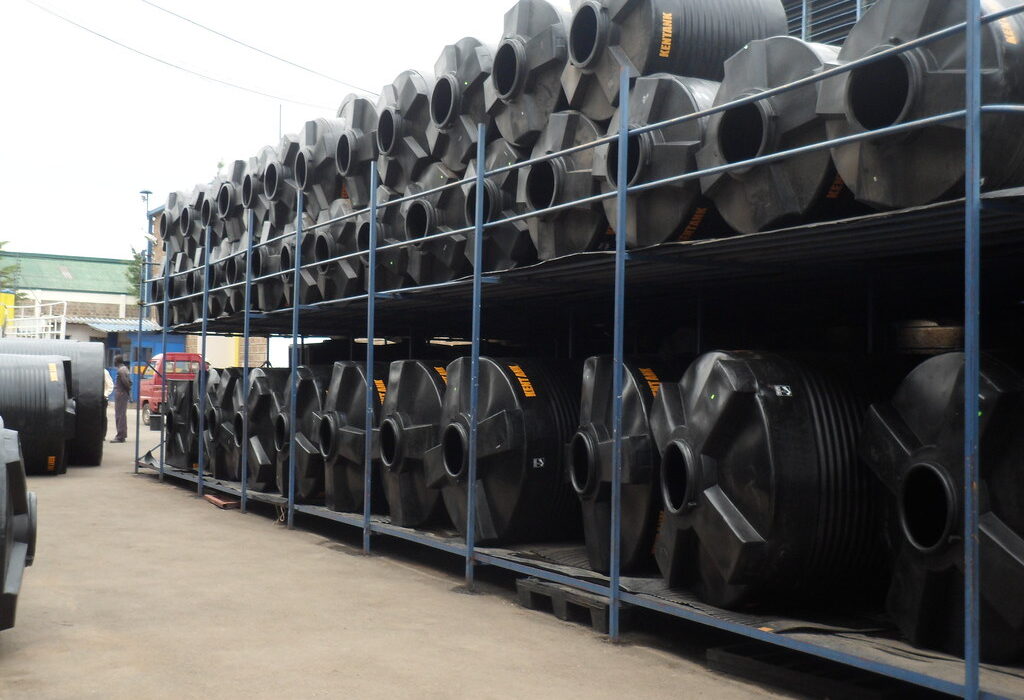Water is an essential resource for daily life, and ensuring a steady supply requires efficient storage solutions. In Kenya, the demand for water tanks continues to grow, fueled by the need for clean, safe, and reliable water storage. This article highlights the best types of water tanks available in Kenya and lists the top suppliers to help you make an informed decision.
Top Water Tank Options in Kenya
The best water tanks in Kenya fall under two main categories:
- Plastic Water Tanks
- Steel Water Tanks
Each type has unique features and benefits that make them suitable for different applications. Let’s explore each in detail.
1. Plastic Water Tanks
Plastic water tanks are the most popular in Kenya due to their affordability, ease of installation, and durability. They are widely used in homes, schools, and commercial settings to store water for various needs.
Key Advantages of Plastic Water Tanks
- Easy to Install: They are lightweight and can be set up quickly without the need for specialized equipment.
- Durability: These tanks are made from tough, UV-resistant materials, ensuring a long service life even under harsh weather conditions.
- Cost-Effective: Plastic tanks are more affordable than steel tanks and require less maintenance.
- Sunlight Blockage: Black plastic tanks are designed to block UV rays, preventing the growth of algae and bacteria inside the tank.
- Available in Various Sizes: Whether you need a small tank for home use or a larger tank for commercial purposes, plastic tanks are available in capacities ranging from 100 liters to 30,000 liters.
Top Plastic Water Tank Suppliers in Kenya
- Kentainers (Kentanks): A leading manufacturer of durable plastic tanks, Kentainers offers tanks ranging from 500 liters to 10,000 liters. Their tanks are known for their superior quality and UV protection.
- Jumbo Tanks: Known for their wide range of tank sizes (from 250 liters to 16,000 liters), Jumbo Tanks are popular for both residential and commercial water storage needs.
- TopTank: Offering tanks in capacities from 50 liters to 24,000 liters, TopTank is a trusted brand in Kenya, known for its durability and efficiency.
- Roto Tanks: Produced by Rotomoulders, Roto Tanks come in various sizes, from 100 liters to 24,000 liters, and are highly regarded for their quality and affordability.
- Techno Tanks: Techno-plast offers a wide range of plastic tanks, with sizes starting at 200 liters and going up to 30,000 liters. They are a popular choice for both domestic and industrial water storage.
- Premiere Tanks: This manufacturer offers tanks in different shapes and colors, ensuring versatility for various customer needs.
2. Steel Water Tanks
Steel water tanks are less common than plastic tanks but offer distinct advantages. They are often used in industrial settings and large-scale water storage applications.
Key Advantages of Steel Water Tanks
- High Durability: Steel tanks can last decades without corroding, especially when made from stainless steel or galvanized steel.
- Rust Resistance: Modern steel tanks are treated to prevent rust, ensuring clean water storage for an extended period.
- Large Storage Capacities: Steel tanks can be built to store massive amounts of water, sometimes up to hundreds of thousands of liters, making them ideal for community water projects or industrial use.
- UV Protection: Steel tanks reflect sunlight, which prevents algae growth and keeps the water clean and safe for drinking.
Installation Methods for Steel Tanks
- On-Ground Installation: The simplest method, where the tank is placed on a raised concrete or steel base to prevent direct contact with the ground.
- Underground Installation: Suitable for large-scale projects, the tank is buried underground with proper lining to avoid contact with soil.
- Raised Steel Tanks: Commonly used for gravity-based water supply systems, the tanks are elevated using a steel structure. This requires careful planning and structural engineering to ensure safety and efficiency.
Accessories for Water Tanks
When purchasing a water tank, you will also need various accessories to complete the installation and ensure efficient water use. Some of the common accessories include:
- Gutters: For rainwater harvesting, especially in home or agricultural setups.
- Pipes: For transferring water from the tank to different outlets.
- Taps: Essential for controlling the flow of water from the tank.
- Sinks: For convenience in water use across various parts of a building or compound.
Factors to Consider When Choosing a Water Tank
When selecting the right water tank, it’s important to consider the following:
- Capacity: Choose a tank that meets your water storage needs. For domestic use, a 1,000 to 2,000-liter tank is common, while larger tanks (5,000 liters and above) are ideal for commercial or agricultural use.
- Durability: The material of the tank, whether plastic or steel, should be resilient to environmental conditions.
- Cost: Compare prices between plastic and steel tanks. While plastic tanks are cheaper upfront, steel tanks can be more cost-effective in the long run due to their durability.
- Space: The available space for installation will determine whether an underground, on-ground, or raised tank is most suitable.
- UV Protection: Ensure the tank you choose is UV-resistant to prevent contamination and algae growth.
Water tanks are essential for ensuring a steady and clean water supply in Kenya. Both plastic and steel water tanks offer viable solutions for different needs. Plastic tanks are widely used due to their affordability and ease of installation, while steel tanks offer durability and high-capacity storage for industrial applications.
Whether you’re looking for a domestic or commercial solution, the brands mentioned in this article provide reliable options. With the right tank, you can ensure that your household, farm, or business has a secure water supply year-round.
For inquiries or purchases, you can visit the respective websites of the manufacturers or check local suppliers for price comparisons.





